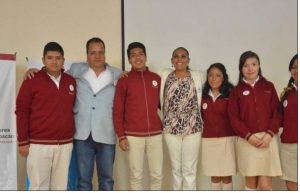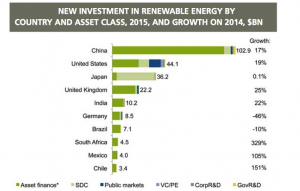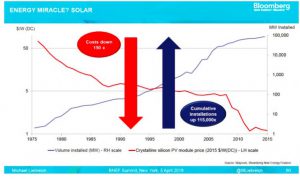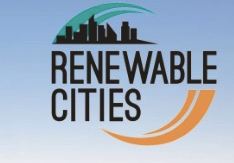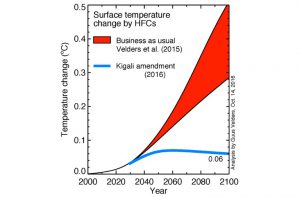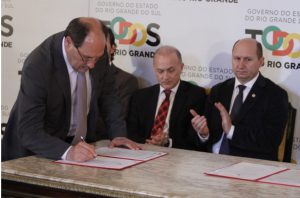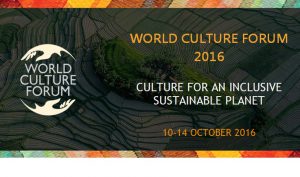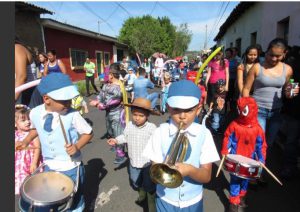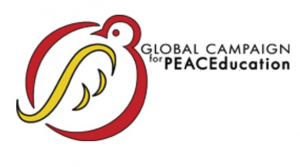
As described in a CPNN article, restorative justice is spreading around the world. It began in the ancient pre-colonial traditions of Africa. In recent times, it inspired the Truth and Reconciliation Commission of South Africa led by Archbishop Desmond, which played such an important role in the transition from apartheid to democracy under the government headed by Nelson Mandela. And more recently it has been adopted in Brazil thanks in great part to the work of Judge Leoberto Brancher. Now restorative justice is being taken up in the United States. CPNN reported on initiatives in Oakland, Los Angeles and Sonoma County, California, Boulder Colorado and Burlington Vermont.
What does it look like in practice? Here’s a description from the Oakland program for young offenders: “It brings the young person and the victim – the offended – together; to talk about the offense, to develop a plan to restore the victim, and to engage the young person in a plan to address the factors that led them to commit the offense in the first place.””
And here is a description from the courtroom of Judge Brancher in Brazil: [I surprise people by] “bringing a facilitator in, and giving a new direction to the lives of the people involved in that conflict. In my Court we have such a door, which our facilitators call, affectionately, “the door of hope”. A service which allows, in real time, an interaction among the Judge, the other judiciary professionals in the proceedings, the stakeholders, the witnesses and the services professionals can also become a kind of powerhouse to spread Restorative Justice into other application contexts. . . ”
Below are CPNN articles since 2015. Links to articles from years before are available here.
Readers are encouraged to add their comments below.
ARTICLES IN ENGLISH
December 2, 2023: Brazil: Ministry of Education advances the debate on restorative justice
October 14, 2022: In Bolívar, Ecuador, the month of the culture of peace was commemorated with the event “justice, peace and art”
August 22, 2022: Colombia: Peacebuilding in Viotá, a model that seeks to be replicated throughout the country
July 12, 2022: Honduras: “Mesas de seguridad ciudadana” in 298 municipalities
January 18, 2022: United States : Marquette Law School Establishes Center for Restorative Justice
January 17, 2022: Council of Europe : Ministerial Conference on restorative justice concludes with the signature of the Declaration of Venice
January 8, 2022: Brazil: Practices that promote a culture of peace at Funase had good results in 2021
November 26, 2021: Jamaica: Increase In Use Of Restorative Justice Centres
November 18, 2021: Petrópolis, Brazil : III International Restorative Justice Week will open next Monday
May 23, 2021: The 3rd Latin American Congress of Restorative Justice closed with more than 4,400 registered participants
February 18, 2021: Oaxaca, Mexico: Judicial Power privileges culture of peace with alternative justice
July 6, 2020: Colombia: The 2nd Latin American Congress of Restorative Justice
November 19, 2019: Alternative justice strengthens the culture of peace in Chiapas
June 28, 2019: Restorative Justice in Brazil: Culture of Peace instead of Punishment
October 26, 2017: Mexico: The government of Zacatecas installs a fifth room for peace and juvenile restorative justice in Cobaez
August 30, 2017: Brazil: Restorative Justice: AJURIS and its Judiciary School sign agreement with Terre des Hommes and MPRS
August 22, 2017: Mexico: With alternative justice, hope advances in Chiapas
April 5, 2017: Paraná, Brazil: Draft Law for Culture of Peace as public policy
October 14, 2016: Brazil: Restorative justice expanded in Rio Grande do Sul
July 24, 2016: Brazil: Public schools of São Vicente transform education through the culture of peace
July 5, 2016: Londrina, Brazil: Fifth Municipal Conference on Culture of Peace
April 14, 2016: Wilmington, Delaware, USA: Movement for a Culture of Peace hosts restorative practices forum
February 24, 2016: USA: New Haven Peaces Out. A Bit
November 8, 2015: USA: Restorative Practices in Schools
March 27, 2015: USA: Discipline Reformers Get A “Restorative” Lesson
December 2, 2023: Brasil: Ministério da Educação avança no debate acerca da justiça restaurativa
October 14, 2022: Ecuador: En bolívar se conmemoró el mes de la cultura de paz con el evento “justicia, paz y arte”
August 22, 2022: Colombia: El modelo de construcción de paz en Viotá que busca ser replicado en todo el país
July 12, 2022: Honduras: Integrarán mesas de seguridad ciudadana en los 298 municipios
– – –
– – –
January 8, 2022: Brasil: Práticas que promovem cultura de paz na Funase tiveram bons resultados em 2021
– – –
November 18, 2021: Petrópolis, Brazil : III Semana Internacional de Justiça Restaurativa será aberta na próxima segunda-feira
May 23, 2021: Cerró el 3° Congreso Latinoamericano de Justicia Restaurativa con la participación de más de 4.400 inscriptos
February 18, 2021: Oaxaca, México: Privilegia Poder Judicial cultura de paz con justicia alternativa
July 6, 2020: Colombia: Finalizó el 2° Congreso Latinoamericano de Justicia Restaurativa
November 19, 2019: Justicia alternativa fortalece la cultura de paz en Chiapas
June 28, 2019: Justiça Restaurativa em Brasil: Cultura da paz em vez da punição
October 26, 2017: México: Instaura Godezac la quinta Sala de Paz y Justicia Restaurativa Juvenil en el Cobaez de Sain Alto
August 30, 2017: Brasil: Justiça Restaurativa: AJURIS e Escola da Magistratura assinam convênio com Terre des Hommes e MPRS
August 22, 2017: México: Una esperanza se consolida en Chiapas
April 5, 2017 Paraná, Brasil: Projeto de Lei quer Cultura da Paz como política pública
October 14, 2016 Brasil: Justiça Restaurativa será ampliada no Rio Grande do Sul
July 24, 2016 Brasil: Escolas públicas da cidade de São Vicente transformam educação por meio da cultura de paz
July 5, 2016 Londrina, Brasil: 5ª conferência Municipal da Cultura de Paz
